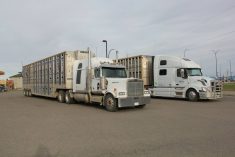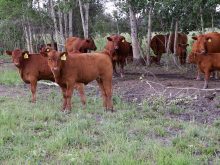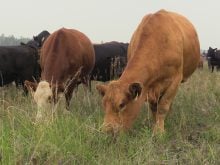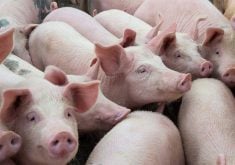CHARLOTTE, N.C. – If La Nina rules this summer, weather watchers can expect drought in some regions and vicious hurricanes in others.
After prolonged El Nino conditions for most of the 1990s, climatologist Art Douglas says some of the coldest sea surface temperatures in 20 years have occurred this February.
“The cold water along the equator has really intensified. When it gets this cold, La Nina lasts two to four years,” he told the annual convention of the National Cattlemen’s Beef Association meeting in Charlotte, North Carolina.
Read Also

Petition launched over grazing lease controversy
Battle continues between the need for generation of tax revenue from irrigation and the preservation of native grasslands in southern Alberta rural municipality.
Douglas makes long-term weather forecasts by tracking sea surface temperatures and monitoring past climate patterns. He forecasts El Nino will return in 2001-2002 because history shows this warming trend returns every three to four years.
His forecast includes normal to severe weather for the upcoming growing season.
Texas and Mexico lived through an economically devastating drought in 1998 and Douglas predicts 1999 may be a repeat of those dry conditions.
“1998 was the driest it has ever been in Mexico in 50 years,” he said.
The latter half of the year saw the American southwest battered by hurricanes. Douglas expects bad weather again with monsoons for Mexico in the summer.
On the other side of the continent in the Pacific Northwest and northern plains, spring will be cooler than normal with some late snow followed by heavier rains later in the season on the coast.
He expects cooler conditions for the West in the summer.
The Midwest cornbelt can expect a hot summer. Douglas predicts a dry growing season for the Midwest but can’t predict how far that drought will spread. Later into the season conditions will return to normal.















